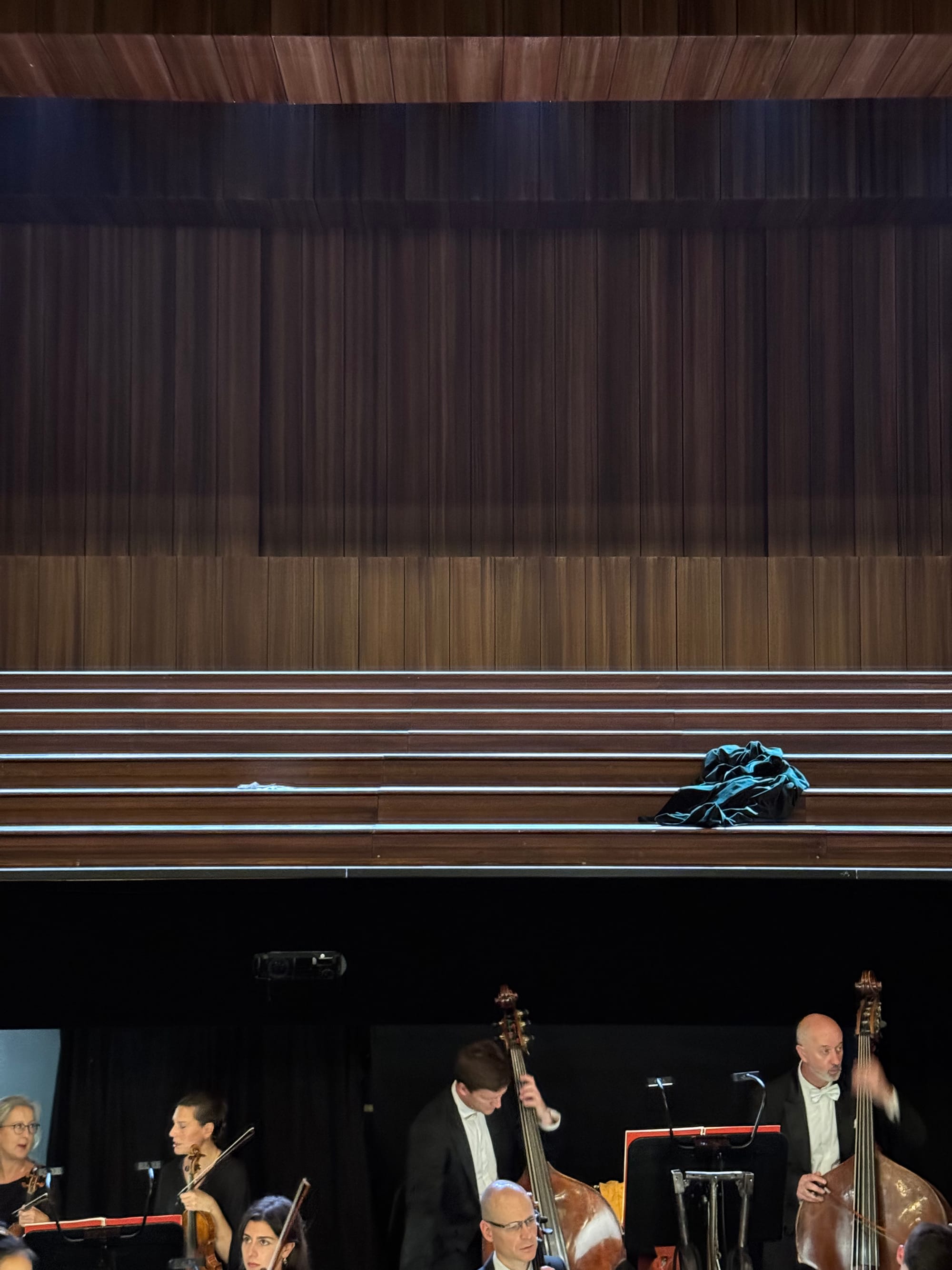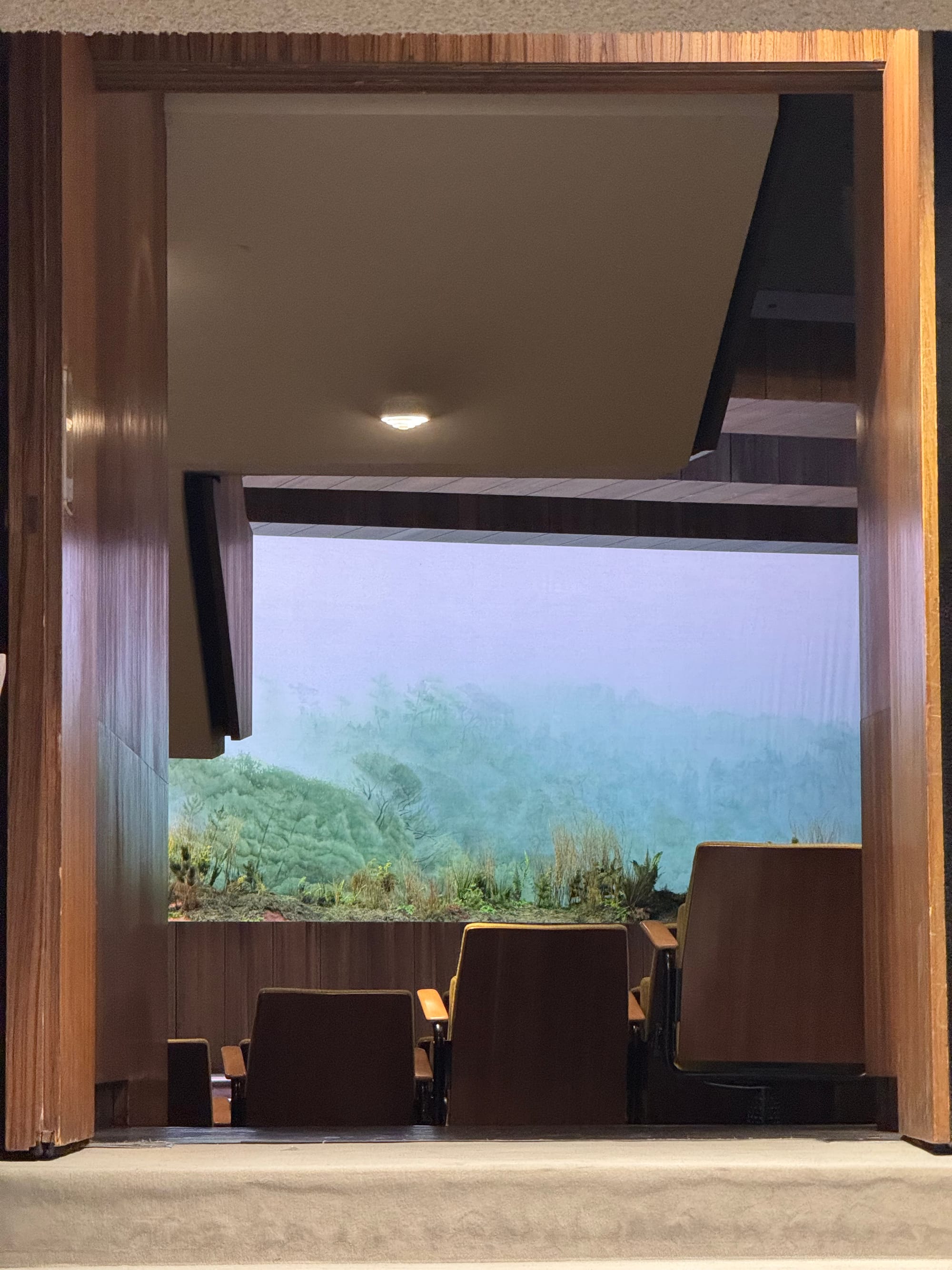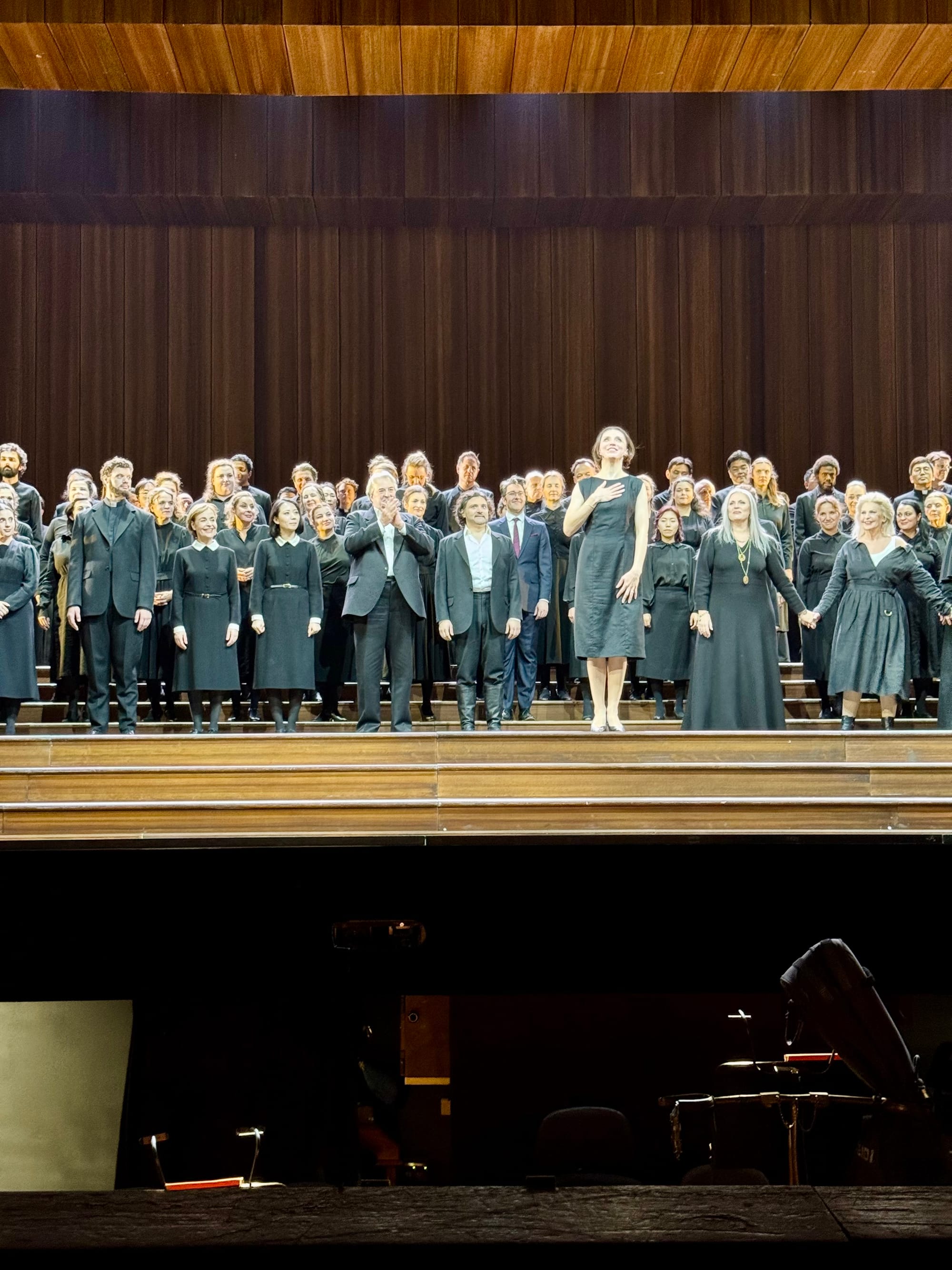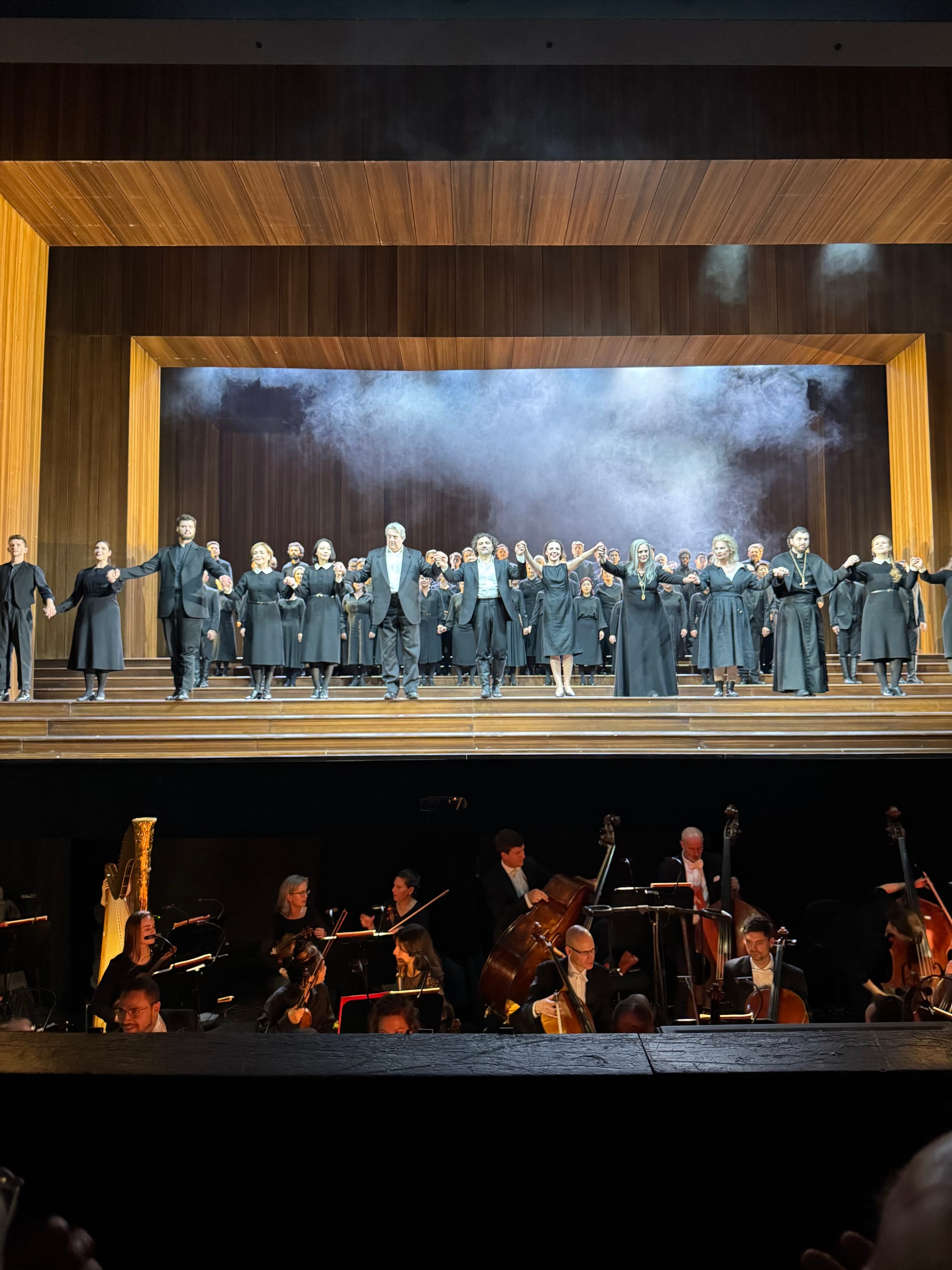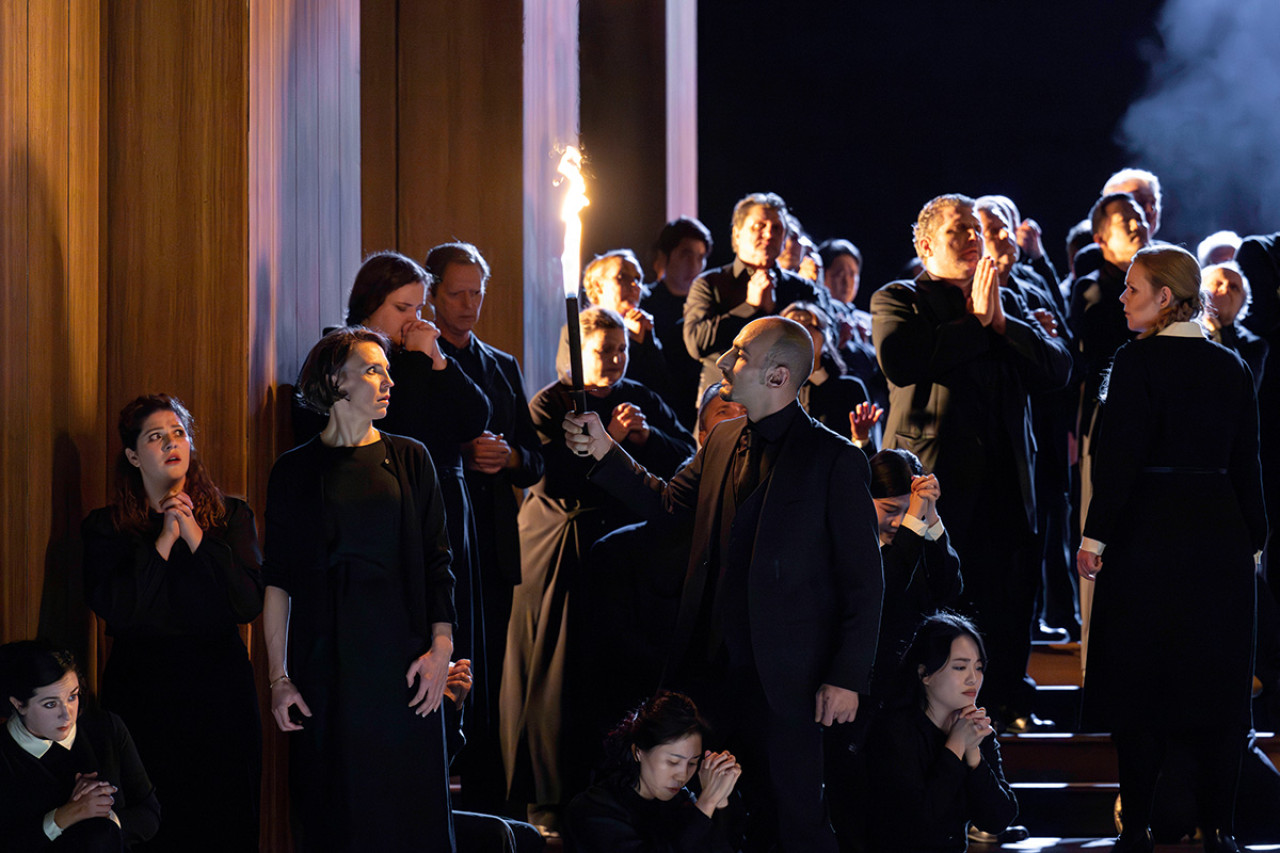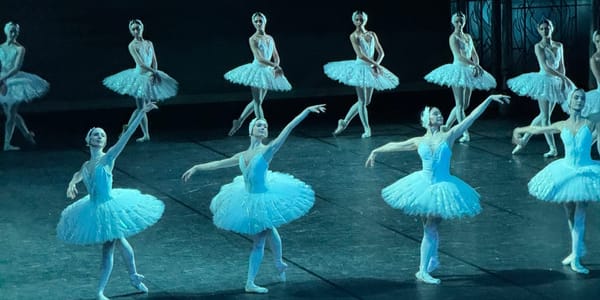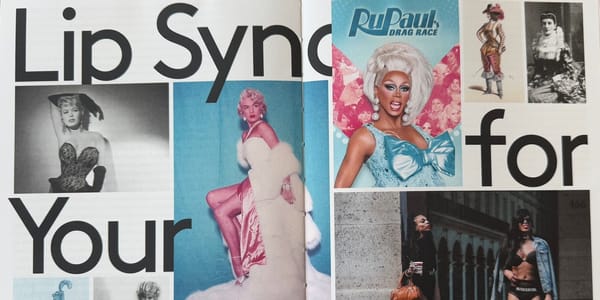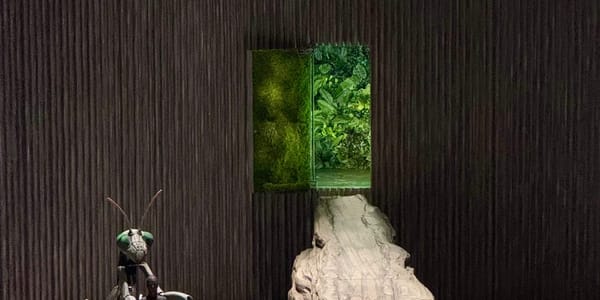La Fiamma at Deutsche Oper Berlin
Religious dominance is a driving motive in La Fiamma. Ultimately, we are reminded that historically, this has been the fate of tens of thousands of women who deviated from societal norm.
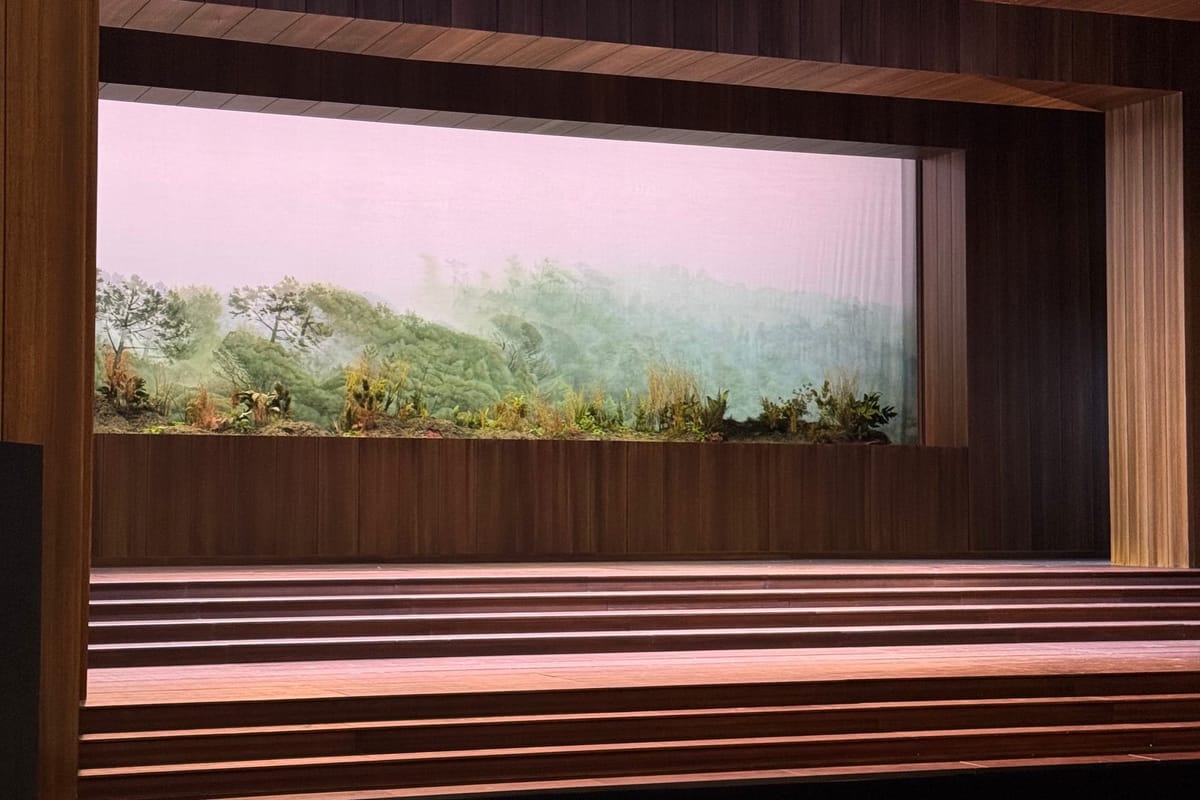
⭐️⭐️⭐️⭐️
🎭 La Fiamma
🎶 Ottorino Respighi
🏛️ Deutsche Oper Berlin
🗓️18.10.2024
La Fiamma, a spectacular fiery jewel!! A very special opera, in a compelling and gripping production at Deutsche Oper Berlin. Summarized in one sentence, La Fiamma highlights friendship and tension between women, passion and betrayal within a family, and the conflict between individual agency and social limitations. And this production is so special because it is only the second time that the opera has been produced at a house in Germany—the first time being its German premiere at the Staatsoper Berlin in 1936 (in German). So in a way, having been part of this project even just as an audience member is almost (!) historic.
So the pressure is ON to write something equally special about this experience which was musically novel, jaw-dropping in moments, visually stunning, and all-around entertaining. At times, it was like watching a thriller because the storytelling was so gripping, the acting very powerful, and the storyline and its outcome utterly unpredictable. I sometimes wonder what it must have been like to see one of the classics like Tosca when it first premiered in 1900. Having now had that experience with La Fiamma—not knowing the plot, the music, or what to expect in general—I could imagine that seeing Tosca jump at the end was a comparable shock to Silvana ultimately not being able to swear before God that she is not a witch.
Musically, Respighi draws from a long history of Italian and occidental music, even incorporating Gregorian and pentatonic influences to underline the plot‘s setting (8th century at a height of tension between Eastern and Western Rome—there‘s always a political component that can be unpacked).
What definitely merits being pointed out about La Fiamma is the fact that all main roles and most supporting roles are (strong) women, with men serving more as plot devices to fuel along the main conflict. I might be slightly exaggerating with that last bit, BUT La Fiamma, unlike many other operas, actually passes the Bechdel test in REAL conversation between main characters (slay!). Actually, at its core, La Fiamma tells the story of Silvana, a young woman dubiously paired off by her mother to a significantly older (and rich and powerful) man, stuck at home with a matriarchal mother-in-law in unhappy exile, and falling in love with her step son who ultimately betrays her along with every one else in the community.
Besides this emotional turmoil, La Fiamma is a classic witch hunt story, based on a real trial from 16th century Norway. Act 1 ends with a jaw-dropping fiery burning-at-the-stake spectacle, in Act 2 Silvana learns that her mother was a witch and convinces herself that she is, too, and in Act 3, she is denounced as such for using magical powers to kill her husband and make her stepson Donello fall in love with her. Her pleading of true love is fruitless, and even when Donello cannot be convinced otherwise, she accepts her fate and refuses to testify against her accusation. With maniacal (or relieved?) laughter, she is dragged to the stake.
Ironically, her refusal to confess that she is not a witch (the chance is given: if she says the right thing, she will be let free) is the strongest act of self-determination for Silvana, after a life without agency. What is most interesting is that in the end, it es never really clarified if these women were witches after all. We only see the community‘s fear projected into these accusations, driven by a powerful orthodox institution. This religious dominance is a driving motive in La Fiamma. Ultimately, we are reminded that historically, this has been the fate of tens of thousands of women who deviated from societal norm, who acted in a socially subversive way, or who had the bad luck at being on the naughty list of someone more powerful than them (like Eudossia). With the term witch hunt being fully established again in sociopolitical discourse and directed at women in politics, La Fiamma is as topical as ever.
